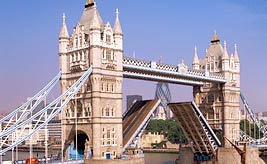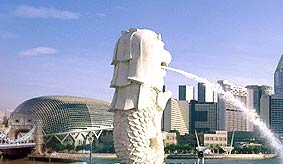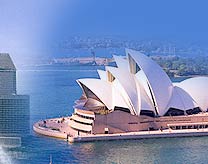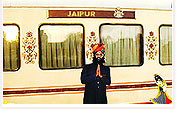The Heart of Cambodia (05 Days)
Phnom Penh | Siem Reap
Day 01 : Arrive Phnom Penh

Arrival
in Phnom Penh
Sightseeing in Phnom Penh
Cambodia's capital sits at the confluence of the Mekong, Bassac and Tonle
Sap rivers. Considered the loveliest of the French-built cities of
Indochina, it was founded as a small monastery in 1372 by a rich Khmer woman
called Penh, after she found four Buddha statues in a tree trunk on the
banks of the Mekong. She set up the monastery on a nearby hill or "phnom"
in Cambodian.
Royal Palace And Silver Pagoda : the royal palace stands on the site of the
former citadel, Bantey Kev (built in 1813). Visitors are not allowed to some
portions of the grounds, as the palace is the official residence of King
Norodom Sihamoni. The silver pagoda is often called the Pagoda of the
Emerald Buddha or Wat Preah Kaeo after the statue housed there. The wooden
temple was originally built by King Norodom in 1892 and inside, its floor is
comprised of more than 5000 silver blocks which together weigh nearly 6
tons.
National Museum : designed by a French archeologist and painter, George
Groslier, in Khmer style in 1920 to exhibit works previously scattered
throughout the country. It contains a collection of Khmer art including the
beautiful 6th century bronze statue of Vishnu.
Central Market or Russian Market : Visit one of Phnom Penh's two great
markets. The Central Market is located in a distinctive domed Art Deco
building, and is filled with jewelry, fabrics and all types of souvenirs.
The Russian Market is a sprawling labyrinth of stalls selling everything
from CDs and DVDs to silks, crafts, jewelry and more. Both are fascinating
places to browse.
Excursion to Killing Fields and Tuol Sleng Museum
Tuol Sleng Museum (Museum of Genocide) : formerly the Tuol Svay Prey High
School, in 1975 it became the Khmer Rouge's main torture and interrogation
center. It was known as Security Prison 21 - or just S-21.
The Killing Fields of Choeung Ek : people tortured in the S-21 prison (a
former school taken over in 1975 by the Khmer Rouge and turned into a
torture chamber) were brought here to be executed. Many mass graves were
found in this area.
Overnight in Phnom Penh
Day 02 : Phnom Penh - Siem Reap
By vehicle from Phnom Penh to Siem Reap
Visit temple for sunset: Watch the sun set over the Cambodian countryside
from the upper terraces of an ancient Angkorian temple.
Overnight in Siem Reap. (B)
Day 03 : Siem Reap

Sightseeing
in Angkor
Visit Angkor Wat : a temple dedicated to the Hindu god Vishnu by King
Suryavarman II, who reigned between 1131 and 1150. It was constructed over a
period of 30 years and is world famous for its beauty and splendor. Angkor
Wat features the longest continuous bas-relief in the world, which runs
along the outer gallery walls and narrates stories from Hindu mythology. In
1992 the UNESCO declared the monument and the whole city of Angkor a World
Heritage Site.
Visit Angkor Thom
Angkor Thom : a fortified Royal City (10 square kilometers) built by King
Jayavarman VII, who ruled from 1181 to 1201. The city has five monumental
gates and is encircled by a moat 100 meters wide. In the center of the
walled city are the city's most important monuments including Bayon,
Baphuon, the Terrace of Elephants, the Terrace of the Leper King and
Phimeanakas with Royal Enclosure.
Bayon : Jayavarman VII's temple mountain that stands at the center of
Angkor Thom. It is one of the most popular of Angkor's monuments and a place
of narrow corridors, steep flights of stairs and an amazing collection of
towers decorated with over 200 smiling faces.
Baphuon : the pyramid shape represents the mythical Mount Meru and marks
the center of the city that was here before Angkor Thom.
Phimeanakas : near the center of what was once the royal palace within
Angkor Thom. Phimeanakas means 'Celestial Palace', though toDay there is not
much left to indicate its former splendour.
Former Royal Palace : nothing remains to Day except two pools that were
used by royalty for washing.
Terrace Of Elephants : this terrace was used for viewing public ceremonies
and was a base for the King's grand audience hall. The famous lines of
elephants are at either end of the retaining walls.
Terrace Of The Leper King : North of the Terrace of Elephants is a platform
named 'Terrace of the Leper King'. On the platform is a nude statue - one of
Angkor's mysteries.
Overnight in Siem Reap. (B)
Day 04 : Siem Reap
Sightseeing in Angkor
Visit Chau Say Tevoda
Chau Say Tevoda : built during the second quarter of the 12th century
opposite of Thommanon, it was dedicated to Shiva and Vishnu.
Visit Thommanon : temple which mirrors Chau Say Tevoda (just to the north),
as it was built around the same time and has a similar plan. It is also
dedicated to Shiva and Vishnu.
Visit Banteay Kdei Temple : a massive Buddhist temple dating from the
second half of the 12th century. It is surrounded by four concentric walls,
the outer walls measuring 500 by 700 meters.
Visit Sras Srang : a basin opposite of Banteay Kdei measuring 800 by 400
metres with a tiny island in the middle where only the stone base remains of
what was once a wooden temple.
Visit Prasat Kravan : the five brick towers were built for Hindu worship in
921 and are notable for the bas-reliefs cut into the bricks on the interior
walls.
Overnight in Siem Reap. (B)
Day 05 : Depart Siem Reap
Transfer to airport for your flight to onward destination. (B)
End of Service
Package Includes :
- English-speaking guide.
- Accommodation as mentioned above or equivalent.
- Meals according to itinerary.
- Ground transportation in private A/C vehicle (complimentary cold towels
and drinking water).
- Sightseeing incl. admission fees according to itinerary.
Package Exclusions :
- All flights
- All entrance fees to monuments, camera fees, porterage and tips, mineral
water, laundry, telephone or any other expense personal in nature.
- Visa fees, airport taxes
- Personal Insurance,
- Drinks and lunches/dinner except where mentioned
- Items of a personal nature
- Driver and guide gratuities
- All entrance fees and excursions not mentioned above
- Porterage at hotels and airports
- Any expenses caused by reasons beyond our control such as bad weather,
natural calamities (landslides, floods), flight delays, excess baggage,
rescheduling or cancellations, any accidents, medical evacuations, riots,
strikes, war, airline or hotel policies etc.







 Arrival
in Phnom Penh
Arrival
in Phnom Penh Sightseeing
in Angkor
Sightseeing
in Angkor